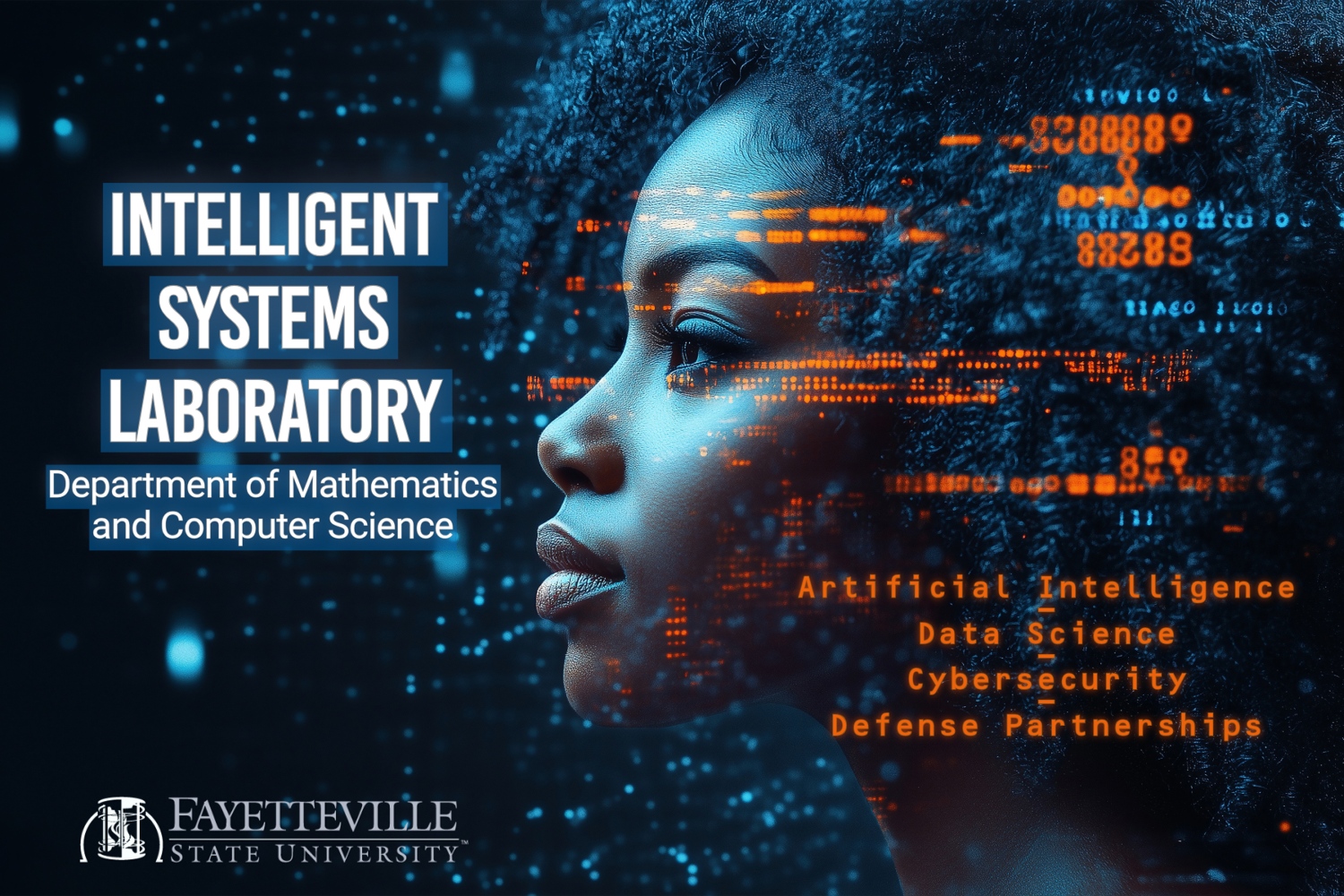Outthinking AI: How Fayetteville State University Students Are Shaping Tomorrow’s Technology
With access to high-impact research and mission-ready tools, the Intelligent Systems Lab is helping students carve out futures that were once thought to be out of reach.

FAYETTEVILLE, N.C. - At Fayetteville State University, students don’t just keep up with technology. They set it in motion. While machines handle the code, Broncos dream bigger, turning bold ideas into real breakthroughs. In these classrooms and labs, the next generation of tech leaders is learning to outsmart the algorithms and shape what comes next.
The Intelligent Systems Laboratory transforms ideas into innovations. As a part of the Department of Mathematics and Computer Science at the Lloyd College of Health, Science, and Technology, the lab drives hands-on research in artificial intelligence, data science, and cybersecurity. It also connects Broncos with opportunities typically reserved for advanced research by collaborating with universities, government agencies, and industry leaders.
Both our undergraduate and graduate students—though we're primarily an undergraduate institution—rarely get this level of hands-on research access," said Sambit Bhattacharya, Ph.D., professor of computer science and director of the Intelligent Systems Laboratory. "I created this lab specifically to give all my students the advanced research opportunities typically reserved for major research universities. I don't want them to simply learn about technology—I want them to actively create it, innovate with it, and graduate with the practical experience and confidence to make an immediate impact in their careers.
That vision has driven ISL’s growth. Since its launch in 2017, ISL has steadily expanded its capacity, building the infrastructure that attracts major federal investments and positioning Fayetteville State University to compete on a national stage.
In 2023, NASA awarded the university $1.3 million for AI and data science research, while the Office of Naval Research provided nearly $600,000 to develop a certificate curriculum in AI for national security. That momentum now extends to ISL’s role in broader defense research partnerships.
Earlier this year, Bhattacharya secured a funded collaborator role for the third consecutive year with North Carolina State University’s Laboratory for Analytic Sciences, contributing to a year-long research project funded by the U.S. Department of Defense. In this collaboration, ISL students assist Bhattacharya and LAS staff with research that addresses national security challenges, gaining exposure to problems with real-world consequences.
From Campus to the Field
That same preparation delivered significant results this summer when ISL students showcased their skills in internships across leading research institutions.
At NASA’s Jet Propulsion Laboratory, seniors Sokhna Amar and Rajil Vebe Sajila joined mission teams developing generative AI tools for early space exploration and atmospheric analysis. Their work directly ties into NASA’s vision for deep-space exploration.
“Working on projects like applying generative AI to mission formulation was a remarkable experience,” said Amar. “It not only built my technical skills but also strengthened my excitement about pursuing a research career and graduate studies in the future.”
That same spirit carried to projects closer to home. Paul Rodriguez, a junior computer science major, applied his ISL experience with the XVIII Airborne Corps at Fort Bragg, designing advanced tools to sharpen the accuracy of optical character recognition models used in real-world military operations.
And the preparation proved just as valuable after graduation. For Santino Sini, who earned his degree in May, ISL became a launchpad to a career at Northrop Grumman, where he now works as an aerospace and algorithm software engineer.
“My ISL work, and internship opportunities were the biggest reason I qualified and secured the job,” he said.
Other ISL students also making their mark include:
- Anita Amofah, senior, computer science - MedPro Group in Indiana, IT modernization and cybersecurity shadowing.
- Javon Floyd, senior, computer science - North Carolina Turnpike Authority, integrating AI into tolling systems and strengthening cybersecurity.
- Morgan Singleton, senior, computer science - UNC Health, contributing to biomedical engineering and capital planning, with her role extended into fall 2025.
- Waylon Robinson, junior, computer science with a cybersecurity minor - The Tulsa Initiative, automating loan applications and creating financial tools for entrepreneurs.
For Bhattacharya, internships are where everything comes together. He has watched students return from these experiences not just with sharper technical skills, but with confidence, initiative, and a sense of purpose that lifts the entire lab.
"You watch them return transformed—tackling ambitious projects and inspiring their classmates," he said. "That's how you measure success. When students become leaders who push boundaries and raise expectations, they elevate the entire academic community."
That drive to push limits isn’t confined to today’s students. It’s an open invitation to the next wave of innovators to step in, take their shot, and shape what comes next.
Ready to Launch Your Journey?
To get started, visit the Intelligent Systems Laboratory website at Fayetteville State or email Bhattacharya at sbhattac@uncfsu.edu to learn more about applying, internship opportunities, or upcoming projects. The next breakthrough could have your name on it.
